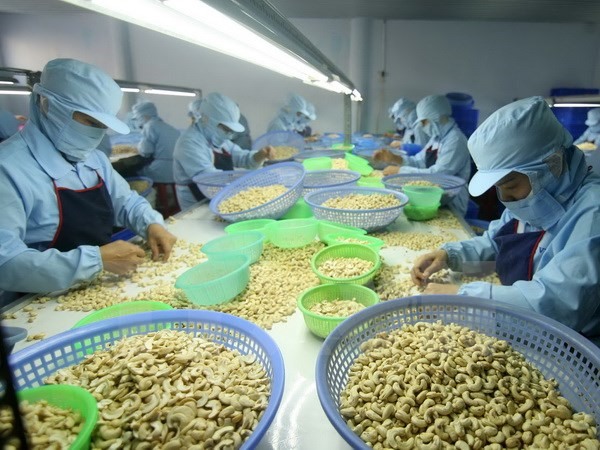 Economy
Economy

Việt Nam and Turkey agreed on Thursday to strive for a surge in two-way trade - from the current level of US$725 million to $4 billion by 2020.
 |
| A cashew processing line for exports. — VNA/VNS Photo Vũ Sinh |
HÀ NỘI — Việt Nam and Turkey agreed on Thursday to strive for a surge in two-way trade - from the current level of US$725 million to $4 billion by 2020. The agreement was reached during the seventh meeting of the Việt Nam-Turkey Joint Committee chaired by Vietnamese Minister of Industry and Trade (MoIT), Trần Tuấn Anh, and Turkish Minister of Labour and Social Security, Mehmet Muezzinoglu.
Muezzinoglu suggested launching negotiations on a bilateral free trade agreement while the Vietnamese side asked Turkey to recognise Việt Nam as a market economy and minimise trade defence measures against Việt Nam’s exports.
In industry, the Vietnamese MoIT’s Agency for Regional Industry Development and the Small and Medium Industry Development Organisation of Turkey (KOSGEB) signed an action plan to continue promoting joint work on small and medium-sized enterprise issues.
As regards investment, the two sides reached consensus on the contents of a memorandum of understanding (MoU) on co-operation in the management of economic, industrial and processing zones.
They also agreed on the contents of the MoU on customs co-operation between the Ministry of Finance and the Turkish Ministry of Customs and Trade.
The two countries are refining agreements on statistics, science and technology, labour, education and training, culture, tourism, health care, natural resources and environment.
Collaboration in energy, food processing, construction, machinery and equipment will also be strengthened.
At a ceremony to sign the minutes of the meeting, Minister Anh said Việt Nam and Turkey already signed agreements on aviation, navigation and double taxation avoidance.
Turkey has launched direct flight services connecting Hà Nội and HCM City.
In the first five months this year, two-way trade between the two nations reached $724.6 million, $634.9 million of which was Việt Nam’s exports, mostly cell phones, fibers, computers, electronics and spare parts, rubber, machinery and equipment, iron and steel, apparel, peppercorns, cashew nuts, wood and wooden furniture, fisheries, footwear, and handicrafts. — VNS